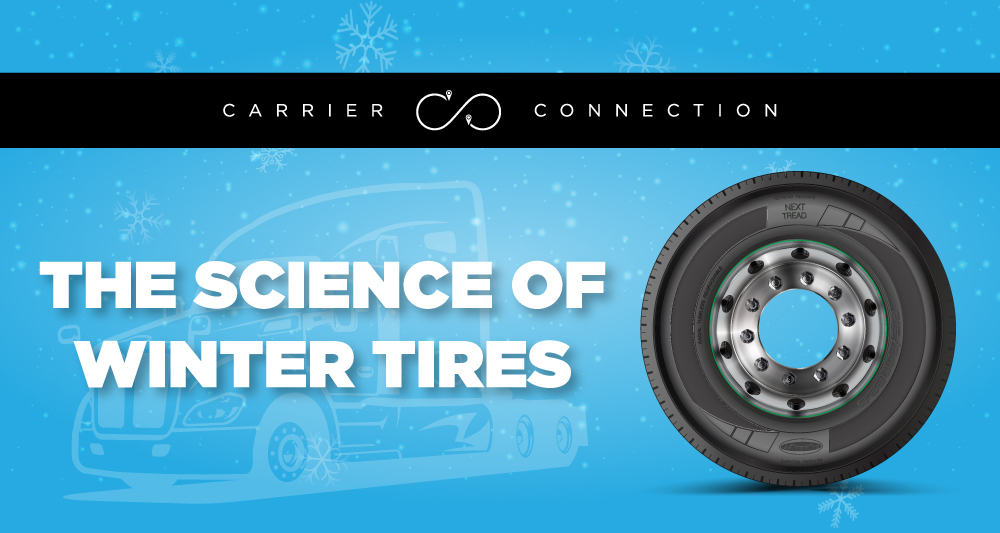![]()
As the snow begins to fall, it’s no doubt that carrier inboxes all seem to collect the same message: Buy winter tires or face the consequences.
With all the hubbub about winter tires, you have probably asked yourself: Do winter tires make that much difference? How do winter tires work?
For such a significant purchase, these are important and valid questions.
In short, winter tires are worth the price and can play a crucial role in your winter safety. Here’s how.
How Do Winter Tires Work?
Winter tires differ from other tires in two fundamental ways: tread and material.
-
Tread
To make grippy tires, engineers want to maximize the contact between the tire and the ground. They accomplish this in several ways:
- Winter tire treads have unique grooves called sipes. These sipes collide with imperfections on the terrain to get more grip and ultimately slow a vehicle down more efficiently.
- Winter tires with sipes can possess up to 40% more surface area than summertime tires.
- Some winter tires even have medal studs to claw at the ground and generate as much friction as possible.
-
Material
Though tread plays a significant role in the grip of a tire, the material that the tire is composed of is even more impactful. Winter tires are simply made-up of material that is better optimized for cold conditions.
- Unlike summer tires, winter tires maintain flexibility in the cold. This allows the tire to meld to the ground surface and create traction.
- (Did you know rubber can shatter if cold enough? This inflexibility causes dangerous sliding, like a hockey puck on ice!)
- Interestingly, the flexibility of winter tires allows snow to get caught in the snipes of the tire more easily. Intuition may tell you this is bad for your vehicle’s grip… but you’d be incorrect. Think of packing a snowball together—snow naturally wants to stick to snow. This cohesion creates a more excellent grip on snow and ice.
- Because of the properties mentioned above, you can decrease stopping distances by up to 30% using winter tires.
Winter tires typically cost about the same as all-season tires, so things can get pricey quickly. It is highly recommended that tire discounts be employed to save on costs.
So, how do winter tires work? By tread and material, science has shown that winter tires make an enormous difference for drivers. Winter tires should be considered essential for truckers all winter long.
—
The England Carrier Services (ECS) division offers various services for carriers ranging from maintenance to support. As ECS members, carriers have access to nationwide discounts on fuel and tires from dedicated team members committed to finding the best price. ECS also provides factoring services with benefits such as same-day funding to a bank account or fuel card. These options allow carriers the freedom to focus on growing their business while saving time and money.



